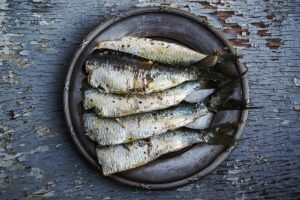A new study has revealed that children who eat plenty of oily fish may be better at reading than their peers, particularly due to the higher intake of Omega 3 fatty acids.
Oily fish like salmon, sardines, tuna, mackerel, and herring are packed with Omega 3 fatty acids, which is why experts are reiterating the importance of including it in every child’s diet.
How much does it affect reading ability?
105 Children aged 9-10 were studied over a period of 6 months at the Gillberg Neuropsychiatry Centre at Goteburg University in Sweden.
The children were taken from 12 mainstream schools in Sweden and their reading skills were assessed before the study took place. Thereafter, 50% of the children were given an Omega 3 and Omega 6 supplement for three months, while the other 50% were only given a placebo.
A computerized test was then used to assess the children’s reading speed, listening skills, visual analysis, vocabulary learning and time decoding skills.
It was found that the children who took the supplement, known as Equazen, showed a 64% improvement in reading comprehension than those who were only given a placebo, and were able to decode words 10% quicker in the following 3 months of the study.
They were also five times better at reading and twenty times better at visual analysis than their placebo peers.
What happened when the placebo children were given the supplement?
In the second part of the study, all 105 children were given Equazen for 3 months, and it was found that the ones who were previously given placebos now showed a 16-fold improvement in reading abilities.
A significant improvement in reading comprehension, phonologic time-decoding, and visual analysis could be seen.
What should parents do?
The positive effects of Omega 3 and 6 supplements in children with reading difficulties and attention deficit/hyperactivity disorder (ADHD) have been demonstrated in previous studies, however, the latest studies prove that these essential fatty acids can be highly beneficial to all children.
“Reading is so important for the development of children’s cognitive skills,” says Dr. Emma Derbyshire, a registered public health nutritionist.
Dr. Alex Richardson, a researcher at Oxford University, says: “Should parents be trying to get their children to consume more Omega 3? Yes, they should! We need more parents, teachers, and health professionals to be aware how important long-chain Omega 3 from fish and seafood are.”
“Fish and seafood is the best way of getting it into children. Any fish and seafood make a useful contribution, the ones that contain even more long-chain Omega 3 in a serving are the oiliest ones,” says Dr. Richardson.
However, if your children can’t or won’t eat fish, he suggests that long-chain Omega 3 supplementation is the best way forward.
The founder of Food and Behavior Research, an independent organization, says that as much as 9 out of 10 children in the UK were not meeting the dietary requirement of Omega 3 fatty acids, which means eating fish at least twice a week.
“If parents really want to help their children’s development, then they should learn something about the guidelines of proper nutrition”, she said.
Sources:
https://www.sciencedirect.com/science/article/pii/S0891422210000156
https://jad.sagepub.com/content/early/2008/04/30/1087054708316261.short
https://www.sciencedirect.com/science/article/pii/S0952327800901947
https://nutritionreviews.oxfordjournals.org/content/62/8/295.short
https://pediatrics.aappublications.org/content/115/5/1360.short
https://ajcn.nutrition.org/content/71/1/327S.short
https://nutritionreviews.oxfordjournals.org/content/70/10/594.abstract








